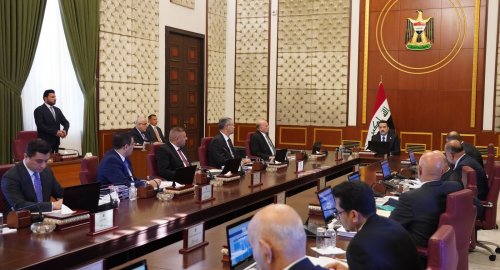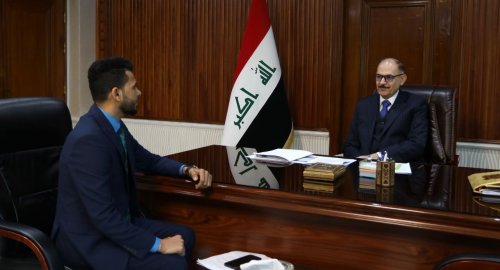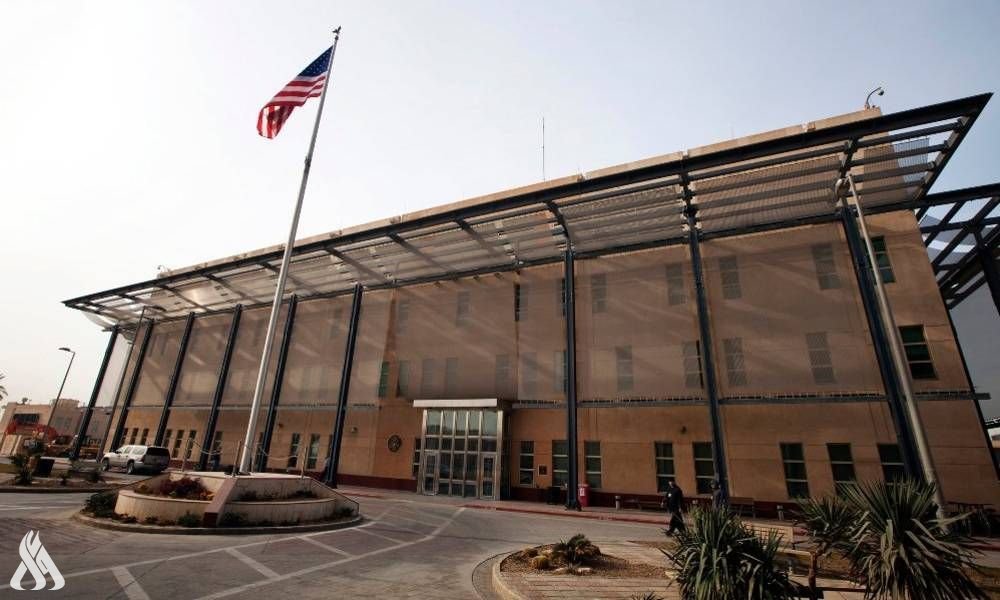
Cabinet decisions at today's session

- 7-03-2023, 18:54
Baghdad-INA
Prime Minister, Mr. Mohammed Shia' Al-Sudani, chaired today the 10th regular session of the Council of Ministers. During the session, the Council of Ministers discussed the country's general situation, the most prominent issues, and the items on the agenda and issued several decisions.
A statement issued by the media office of the Prime Minister, received by the Iraqi News Agency (INA), that “His Excellency directed all ministers to expedite the comprehensive evaluation process of the performance and achievements of the general managers in their ministries, as the period set for the review ends on March 12, 2023. His Excellency stressed that the review should be based on professional standards without being affected by any other considerations.
The Prime Minister emphasized the importance of empowering women in state institutions and directed the ministers to take measures that care for women when doing paperwork at government departments.
Based on the Prime Minister's promise to the Iraqi people regarding addressing the housing problem and achieving one of the strategic goals in the government program, providing residential plots of land for citizens, as well as building new residential cities that contribute to solving the housing problem in Iraq, the Council of Ministers decided the following:
First:
1- Forming a team headed by the Minister of Construction, Housing, Municipalities, and Public Works, with the membership of each of the Minister of Environment, the Chairman of the Board of PM Advisers, the Chairman of the National Investment Commission, the Mayor of Baghdad, the Governor of the concerned governorate, the Head of the Legal Department in the General Secretariat of the Council of Ministers, and the Director General of the Regional Development Department at Ministry of Planning.
2- The New Cities Authority in the Ministry of Construction, Housing, Municipalities, and Public Works will undertake the leadership of this team and has the authority to seek the assistance of whomever it deems appropriate to carry out its tasks.
Second: The team undertakes the following tasks:
A. Planning, working and supervising the efforts of building new cities and creating the proper environment for success.
B. Achieving a balance between supporting public housing projects for low-income people and encouraging the private sector and investors to participate in building these cities and providing services.
C. Applying competitive economic systems, regulations, and international quality standards appropriate to the local environment during implementation.
D. Establishing proper mechanisms and standards for distributing land and investment projects in these cities, facilitating the procedures for granting investment licenses, and proposing financing models.
E. Improving the quality of government services, applying electronic governance for all procedures related to these cities, and providing them with the required efficiency level.
Third: The team is authorized the following powers:
1- Approving new urban development plans and referring them for Approval.
2- Negotiating with developers and investors to implement infrastructure and other investment projects and issues related to constructing new cities.
3- Preparing innovative models for partnerships with the private sector by offering them investment opportunities in distinctive and economically feasible locations in the capital and the governorates to encourage them to establish low-cost infrastructure and homes in new cities.
4- Reviewing terms, standards, and criteria for projects and urban development in these cities and taking the necessary measures.
5- Reviewing the investment proposals for new cities sent to the team, selecting the qualified ones, and referring them to the investment commissions to issue investment licenses in accordance with the law.
6- Forming technical teams and support committees as executive bodies for the new cities, with the participation of the community representing the segments of society, investors, and service and government agencies.
7- Submitting the minutes of the team's meetings regarding the distribution of housing units and residential plots of land in the new cities for Approval by the Prime Minister.
To set the general approach of the state and the government regarding empowering women, promoting their rights, and taking into account gender integration in legislation, policies, decisions, and programs approved by state agencies and institutions, the Council of Ministers approved today the National Strategy for Iraqi Women (2023-2030).
Also, the Council of Ministers approved a bill to join the Statute of the Organization for the Development of Women in the Member States of the Organization of Islamic Cooperation and referred it to the Council of Representatives.
To support vulnerable groups in society, particularly widows, divorcees, and people with special needs, the Council of Ministers approved the recommendation of the minutes of the National Housing Council session to exempt widows, divorcees, and people with disabilities exclusively from those covered by Cabinet Resolution (13 of 2020) regarding a reduction of (20%) of the price of the housing unit - and make it (75%) equal to the community groups covered by the discount for the housing complexes built by the Ministry of Construction, Housing, Municipalities, and Public Works.
The distribution follows the conditions and controls in force for these groups in the Maysan Residential Complex, which the Ministry of Migration and Displacement is implementing, and the waiver and write-off of government debts indicated in the Ministry's letter.
As the blessed month of Ramadan is approaching, the Council of Ministers approved the proposal of the Ministry of Trade regarding adding (1/2 kg of starch, 1kg of noodles, 5kg of 00 flour, and one egg carton) to the basket for the blessed month of Ramadan for each family, based on financial allocations for the year 2023.
Based on the orders of the Prime Minister during his recent meeting with the High National Committee for Water, in which he emphasized the optimal use of water and encouraged farmers to use modern irrigation systems, the Council of Ministers agreed to waive the customs fee related to modern irrigation systems imported by the private sector.
The Council of Ministers continued discussing other issues on the agenda and issued the following decisions:
First: Approval of the recommendations of the minutes of the (twenty-ninth) meeting of the Diwani Order Committee (45 of 2018) regarding the development of ways, mechanisms, and solutions necessary to complete public hospital projects.
Second: Approval of the Army Aviation College Bill, which was reviewed by the State Council, and referred to the Council of Representatives, taking into account the notes of the legal department in the General Secretariat of the Council of Ministers.
Third: Approval of the following:
1- Authorizing the Director General of the Iraqi Civil Aviation Authority to negotiate and sign a draft air transport agreement between the Government of the Republic of Iraq and the Government of the Republic of Finland based on the provisions of the Constitution.
2- The Ministry of Foreign Affairs prepares the necessary authorization document on behalf of the Government of the Republic of Iraq to the Director General of the Iraqi Civil Aviation Authority according to the proper standard procedures and submits it to the General Secretariat of the Council of Ministers to obtain the signature of the Prime Minister.
Fourth: Approving the issuance of a system to amend the religious schools' regulation (2 of 1993), which was audited by the State Council, based on the provisions of the constitution, and the Endowment Management Law (64 of 1966), taking into account the opinion of the General Secretariat of the Council of Ministers, and the remarks of the Secretary-General of the Council of Ministers during meeting session.
US Embassy: Trade Mission of 60 Companies Visits Iraq
- politics
- 25/04/07
CBI unveils comprehensive reform plan to modernize banking sector
- Economy
- 25/04/07












